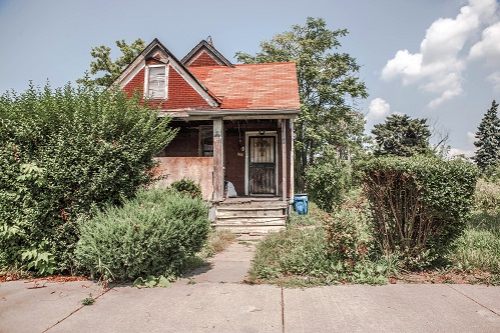- What is title insurance?
- How does title insurance work?
- Types of title insurance
- What does title insurance cover?
- What does title insurance not cover?
- How much is title insurance?
- Who pays for title insurance?
- Is title insurance a one-time fee?
- Where to buy title insurance
- Why is title insurance important?
- Frequently asked questions
What is title insurance?
Title insurance is coverage that protects you from ownership problems related to the title – the document that says who owns the property – on the real estate you’re purchasing.
During the mortgage process, lenders request a title search from a title company. They will look for any claims on the property or issues with the title. That can include another person claiming ownership of the property, a contractor seeking payment, or fraudulent documents. Sometimes, these things are not found until after closing.
For a real estate transaction to go through, the title needs to be clear and void of any issues that might interfere with the transfer of ownership. Title insurance protects you and the lender in case anything goes wrong.
How does title insurance work?
The mortgage company begins the process of getting the title insurance soon after you’ve the loan process starts. There are a few steps to getting title insurance:
Step 1: Select a title insurance company
Most often, your lender chooses the title insurance company and likely has one they regularly work with. However, if you plan to also purchase owner's title insurance, it may be worth mentioning that to your lender. If both policies can be purchased through the same title insurance company, you may get a better deal on both.
If you decide to shop for your own title insurance, start by requesting quotes from at least three insurance companies. When reviewing the quotes, be sure each company has quoted the same coverage.
Next, review the company’s financial strength on AM Best, their reputation on J.D. Power and Associates, and the National Association of Insurance Commissioners, and ask for references from family and friends.
Step 2: Title search
The chosen title insurance company will do a title search to confirm that the official owner is selling the property you want to buy and that there are no other apparent defects.
Step 3: Title insurance underwriting
Next, the title insurance will go to underwriting where underwriters will do a deep dive to discover any previously unknown issues with the title. This is how they will determine if they will offer you a policy and what the rate will be.
Step 4: Buying a title insurance policy
Once you (or your lender) have reviewed the title insurance quote and made your decision, the insurance company will send over the policy for your review and signature. Be sure to communicate with your lender throughout this process to ensure you are meeting all requirements for closing.
Once the mortgage closes, your new title will be sent to the mortgage company. Since this mortgage company has paid for your property they will keep the title until you have paid them back. When you pay off the loan, the title will be sent to you.
Types of title insurance
There are different types of title insurance, and understanding the differences is essential.
Lender's title insurance
The lender's title insurance policy protects the lender against loss in the event there are title defects. This is the most common type of title insurance that lenders require before closing on a mortgage. The lender's title insurance policy typically lasts until the mortgage is paid in full. Although most lenders will do a formal title search as part of the mortgage process to look for red flags, lender's title insurance gives them some extra protection against loss.
Owner's title insurance
This type of title insurance covers the owner in the event there are title defects. Remember, lender’s title insurance only protects the lender. That means if there is an issue with the title, the lender is protected from financial loss, but without owner's title insurance, you are not.
Owner’s title insurance is the owner's policy and is valid for as long as you (or your heirs) hold title to the property. It’s typically optional.
What does title insurance cover?
If there is a dispute during the title transfer of ownership, title insurance comes into play to provide protection for financial loss. So, what kind of real estate title defects should you be aware of? Here are some issues that title insurance covers:
- Filing errors. This could be an error in public records, for example, if the square footage of a home is listed incorrectly in public records.
- Title forgeries. If it is discovered that your title has a forged signature, this could cause ownership issues.
- Conflicting or undiscovered wills. If the property was willed to someone else in the previously undiscovered will of a previous property owner, your ownership could be in jeopardy.
- Liens. Liens are often placed on assets when there is unpaid debt from a previous owner. The lien is placed on the property, not the person, and stays with the property regardless of who owns it.
- Undocumented easements. This can happen if there are access areas on your property that someone (often a utility company) has the right to use.
What do these issues mean for you? Let’s say you purchase a new home and later find out there are liens against the property for $20,000. There is a lender's policy but you decided not to get an owner's policy. As the new owner of that property, you may be responsible for paying off the lien and any other fees associated with the issue. Any legal fees associated with this issue will be paid for by you. And in a worst-case scenario, you may even have to forfeit the property.
Now, let’s assume the same scenario happens, but this time, you’ve got an owner's title policy. Your title insurance policy should cover the liens, your legal fees, and compensation if you have to forfeit the property.
What does title insurance not cover?
Title insurance covers only issues with the title to the property. It doesn’t cover anything to do with the home or your property. You’ll need a homeowners insurance policy to properly cover your home, possessions, and personal property.
How much is title insurance?
The title insurance cost varies by a variety of factors, including state, property location, property purchase price, and type of coverage. Title insurance policy costs typically range from $500 to $3,500.
In most states, title insurance companies set their own rates, and then it’s up to you to shop around. In those states, insurance rates are regulated to ensure that rates are not too low or too high but can still vary significantly from company to company. Some states set the rate for all title insurance companies.
Who pays for title insurance?
Whether lender's title insurance, owner's title insurance, or both, the cost is typically the responsibility of the buyer. But the good news is that you may be able to negotiate for the property seller to pay all closing costs, including title insurance.
Why would a seller pay for your title insurance? Usually, it is an incentive to help sell the house.
Is title insurance a one-time fee?
Yes. Once the title insurance premium is paid, the policy remains in place as long as you own the home. If you sell the home, the buyer will need to purchase their own title insurance.
Where to buy title insurance
You can also choose to shop for title insurance on your own. There are four major insurance groups that dominate the title insurance market:
These four groups make up close to 90% of the market.
Why is title insurance important?
If you are buying a home or property, title insurance is an important part of protecting yourself from financial hardship. Don’t forget that the title insurance you’ll pay for through your mortgage lender will most likely only be the lender's title insurance and will not protect you in the event there is an issue with the title. To lower your risk of financial loss, consider an owner's title insurance policy, too.
Frequently asked questions
Where to buy title insurance?
You can buy title insurance from title insurance companies, title agencies, or sometimes through your real estate agent or lender. Some well-known title insurance companies include First American Title, Fidelity National Title, and Old Republic Title. It’s often part of the closing process when buying a home.




